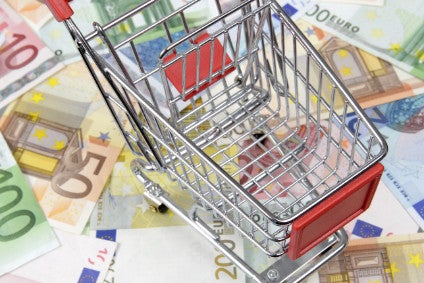Europe has been mired in the fall-out from the economic recession for far too long with Spain, Italy and Greece having borne the brunt of recessionary woes in the last few years.
However, 2016 should be the year we remember to view Europe as a single entity with multiple paths to growth for food manufacturers.
One of the original intentions of the European single market was to create a formidable competitor to other world economies (in particular the US, China and Russia). Certainly it could be argued it is the world’s largest economy – and if you add the economic growth of each individual country in the EU together, it does indeed compare favourably with other global powerhouses.
In recognising Europe as a whole, instead of focusing on its single points of failure, such as Greece, it is possible to find paths to growth that avoid the complications of trading in China, with its state-owned enterprises gaining clear advantages over private businesses, and Russia’s sliding economy.
Further, with low interest rates, we should expect to see more acquisitions in the region. The Wall Street Journal reported recently that global mergers and acquisitions reached an all-time high of $4.304 trillion in 2015, beating an earlier record of $4.296 trillion in 2007. Many of these were related to consolidation within key sectors.
While looking for new paths to growth in Europe through innovation and optimization of supply and other operational efficiencies, we expect that in 2016 manufacturers, and retailers, will put a greater focus on solutions that will enable them to find new efficiencies in running their European operations.

US Tariffs are shifting - will you react or anticipate?
Don’t let policy changes catch you off guard. Stay proactive with real-time data and expert analysis.
By GlobalDataCollaboration makes reaching these efficiency goals much easier and, in the era of big data, it is clear joining forces to better understand and serve shoppers could be a win-win situation.
Retailers have market and consumer data in abundance, so they are in the best position to listen to consumers’ demands and respond to them quickly. Manufacturers bring their in-depth knowledge of brands and categories to the relationship. By working with retailers, they can analyse and derive conclusions that can be used as the basis for all sorts of decisions, including finding the optimum combination of product lines to make available to shoppers and maximizing the efficacy of price-based promotions.
Of course, advances in technology have made it much easier for collaboration to take place. Willingness to share information is not enough by itself. Secure portals provide access to clearly defined datasets and eliminate the fear factor for retailers that may have been reluctant to give suppliers too much information about their own business affairs.
More retailers are working harder for their suppliers today and that’s good news for customers, manufacturers and retailers.
By working more closely with retailers, food manufacturers gain access to bigger data that will reveal where opportunities for growth lie in Europe.





